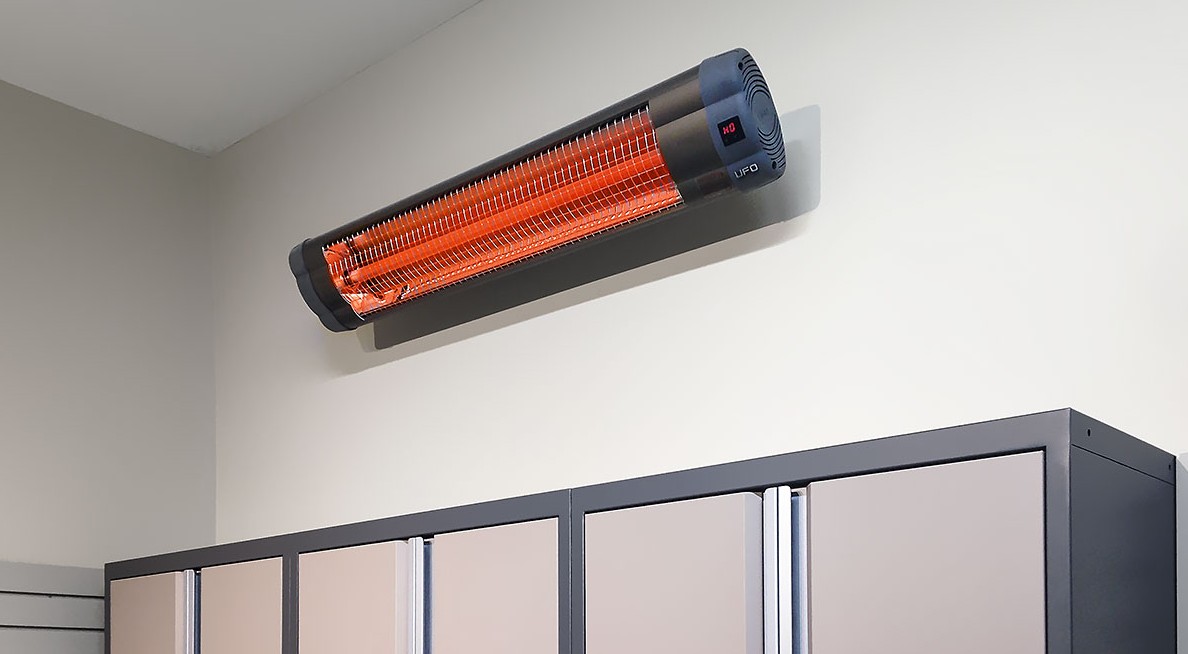How to Size a Garage Heater
Buying the right heater size for your space could save you money.
A small electric or gas heater will increase your power bill in an attempt to heat a space that’s beyond its capacity.
On the other hand you will waste money on heating power that you will not use when you buy a large heater.
Factors that determine your heating needs
Weather conditions
Weather conditions play an essential role in determining your energy needs.
Warmer climates require less heating, while colder climates require more heating. The warmer or colder the outside air is, the higher or lower the energy you will need to reach your desired internal temperature.
Garage size
The bigger the garage space, the greater the heating required.
Insulation
An insulated garage will require less heating energy, while an uninsulated one will require high amounts of energy to heat.
Size of doors and windows
Large doors and windows will bring in more cold air. Therefore, you will require more heating energy to achieve your desired level of temperature.
Uninsulated doors and windows will increase the need for more energy to heat your garage.
You can use these two ways to estimate your garage heater size.
Rule of 10 watts per square foot
For this method, you need to measure your garage space in feet and then multiply by 10.
For example, if your garage’s floor space is 22ft x 24ft, its square feet is 528. To estimate the wattage required for this space, multiply 528 by 10, which is 5280 watts. This figure gives you an idea of the wattage of the heater your garage needs.
Electric heaters are rated in wattage, while gas heaters are rated in BTUs.
To convert the heater wattage to BTUs, multiply the wattage by 3.41.
In our example, multiply 5280 by 3.41, which is 18,005 BTUs.
BTU stands for British Thermal Unit. A BTU is the amount of energy required to heat one pound of water by one degree. One watt is equivalent to approximately 3.41 BTUs.
Using BTUs
The second way of sizing your heater is more complex but also more precise.
Begin by defining your desired rise in temperature and the volume of your garage.
To calculate volume, measure your garage’s length, width and ceiling height, and multiply these figures to get the volume in cubic feet.
For example, if the size of the garage is 22ft x 24ft x 8ft, the volume of the air in that space is 22*24*8= 4224 cubic feet.
Next, you need to estimate the insulation degree in your garage.
The recommended insulation degree that’s an average for a home varies from one region to another.
In extremely cold conditions, the walls in rooms require an R-value of between 25 and 30.
In hot conditions, the walls require an R-value of between 13 and 15. You need to check the R-value recommended for your region. You also need to rate the degree of insulation based on how high or low it is from the recommended average.
Rate as follows:
- 5 if your space lacks insulation
- 1.5 for weak insulation
- 1 for average insulation
- 0.5 for strong insulation
R-value is the measure of a material’s thermal resistance. It measures a material’s ability to resist heat flow. The higher its R-value, the more effective an insulator is.
R-value is vital in calculating heater size because it helps determine heat loss degree and the heater size you require to maintain a comfortsble temperature in your garage.
Temperature rise is the amount of heat you require to raise the internal temperature of your garage to your desired level. It is calculated by subtracting the temperature outside from your desired temperature. For example, if 40°F is the average temperature outside your garage, and you want to heat your garage to 65°F, the temperature rise will be the difference,i.e. 65°- 40°=25°F.
With the figures now identified, you can calculate the BTUs required using this formula –
(Insulation * Volume * Temp rise)/1.6
Assuming your desired temperature rise for our 22ft x 24ft (4224 cubic ft) garage is 25° F, and it has average insulation, here’s how to calculate BTUs:
(1 * 4224 * 25)/1.6 = 66,000 BTU
To convert BTUs to watts, divide by 3.41.
For our example,
66,000/3.41=19,354 watts.
It isn’t easy to find an electric heater rated for such wattage. This means that to achieve the desired temperature for your garage, you will need to either install multiple electric heaters or a gas heater.
Alternatively, you can choose to increase the insulation degree to reduce the amount of energy that’s required to heat your garage space.
For our hypothetical garage of 4224 sq. ft, if we increase insulation to 0.5, we will only require a heater that’s half the size as before.
(0.5 * 4224 * 25)/1.6 = 33,000 BTU
33,000 BTU/3.41 = 9677 Watts
You can increase insulation by insulating your garage walls, doors, windows, light switches and outlets, and concrete floor and seal off doors that are not in use.
Alternatively, you can divide the total square footage of your garage by 200 and then multiply by 9,000 for an uninsulated garage and 6,000 for an insulated garage.
For example, our hypothetical garage of 22ft x 24ft has 528 sq. ft.
To calculate BTU,
(528/200)*9000=23,760 BTUs
Or
(528/200)*6000=15,840 BTUs
However, if the maths is too complex for you, you can take advantage of the heater size calculator available on your heater dealer’s website to get the right size garage heater.
Check this too: How to Hide Water Heater in the Garage
How many BTUs do I need to heat my garage
The amount of BTUs you need to heat your garage is dependent on the size of your garage, your region’s R-value, the level of insulation inside your garage, as well as your desired temperature level, as shown in the formula above.
How many BTUs do I need to heat a two-car garage
In case mathematics is not your forte, below is a basic rule of thumb you can follow to size your garage heater if you only know the number of cars it can hold:
| No of cars | Average size(ft) | Average square feet | BTUs range |
| 1 | 12 x 20 | 160-380 | 8,000-12,000 |
| 2 | 18 x 20 | 400-600 | 12,000-15,000 |
| 3 | 28 x 20 | 550-700 | 15,000-22,000 |
| 4 | 36 x 22 | 700-900 | 20,000-28,000 |
| 5 | 45 x 24 | 1000-2500 | 30,00-51,000 |
Garage heater sizing guide
Conclusion
It is important to get the right size heater for your garage to save money.
Follow the methods of sizing your heater mentioned above, or seek professional help.


